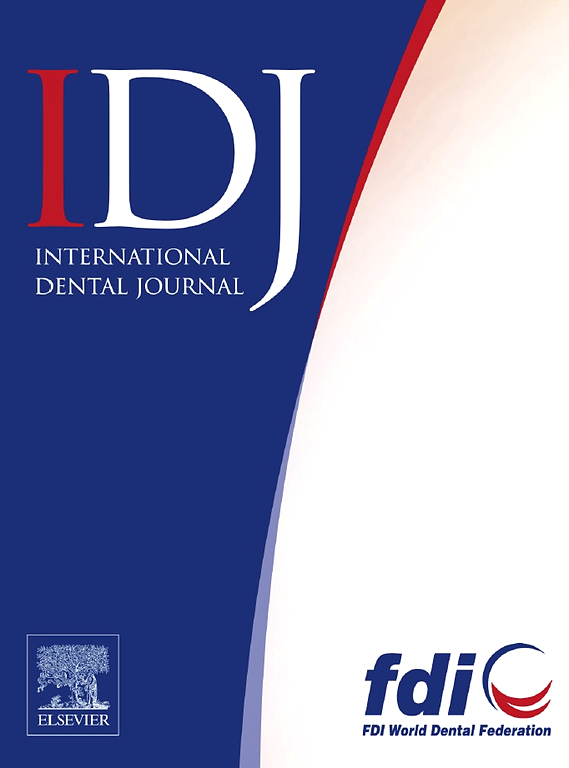Protein Phosphatases 2A Affects Drug Resistance of Candida albicans Biofilm Via ATG Protein Phosphorylation Induction
IF 3.7
3区 医学
Q1 DENTISTRY, ORAL SURGERY & MEDICINE
引用次数: 0
Abstract
Objectives
Candida albicans (C. albicans) biofilms are well-known to be resistantto various antifungal agents. Autophagy is crucial for adapting to changes in nutrition conditions. Protein phosphatase 2A (PP2A) is prominent in regulating physiological processes, possibly related to autophagy-related (ATG) protein phosphorylation. This study hypothesizes that PP2A affects biofilm formation and drug resistance of C. albicans via autophagy induction.
Materials and methods
The expressions of PP2A catalytic subunit coding gene PPH21 were compared. The mutant strain (pph21Δ/Δ) was constructed and the biofilm was treated with autophagy activator (rapamycin, Rap). The biofilm formation, drug susceptibility and oxidative stress levels were examined. The autophagic activity was detected, along with the autophagosomes observed. The therapeutic efficacy of the antifungal agents was estimated on the mice model of C. albicans oral infection.
Results
PPH21 was associated with C. albicans biofilm formation and drug resistance. Autophagy activation by rapamycin can induce increased autophagy levels, while it was hindered in pph21Δ/Δ. Besides, the protein levels of Atg13 and Atg1 were significantly down-regulated in pph21Δ/Δ+Rap (P < .01), along with its decreased regulatory capacity to oxidative stress. Autophagy activation can promote biofilm formation and improve drug resistance, while the absence of PPH21 may prevent the enhancement of drug resistance. Autophagy activation reduced the efficacy of antifungal agents in treating oral C. albicans infection in mice, among which pph21Δ/Δ presented better therapeutic effects.
Conclusion
PP2A is important in the autophagy induction of C. albicans by participating in Atg13 phosphorylation, followed by Atg1 activation, further affecting its biofilm formation and drug resistance.
Clinical relevance
PP2A-induced autophagy may be a potential regulatory mechanism of C. albicans drug resistance. This appears to be a promising therapeutic strategy for managing C. albicans-related infectious diseases.
蛋白磷酸酶2A通过ATG蛋白磷酸化诱导影响白色念珠菌生物膜的耐药
目的探讨白色念珠菌生物膜对多种抗真菌药物的耐药性。自噬是适应营养条件变化的关键。蛋白磷酸酶2A (PP2A)在调节生理过程中起重要作用,可能与自噬相关(ATG)蛋白磷酸化有关。本研究假设PP2A通过诱导自噬影响白色念珠菌的生物膜形成和耐药。材料与方法比较PP2A催化亚基编码基因PPH21的表达情况。构建突变株(pph21Δ/Δ),并用自噬激活剂(rapamycin, Rap)处理生物膜。检测生物膜形成、药物敏感性和氧化应激水平。检测自噬活性,观察自噬体。观察抗真菌药物对口腔白色念珠菌感染小鼠模型的治疗效果。结果spph21与白色念珠菌生物膜形成及耐药性相关。雷帕霉素激活自噬可以诱导自噬水平升高,而在pph21Δ/Δ中受到抑制。此外,pph21Δ/Δ+Rap中Atg13和Atg1蛋白水平显著下调(P < 0.01),对氧化应激的调节能力下降。自噬激活可以促进生物膜的形成,提高耐药性,而PPH21的缺失可能会阻止耐药性的增强。自噬激活降低了抗真菌药物治疗小鼠口腔白色念珠菌感染的疗效,其中pph21Δ/Δ治疗效果较好。结论pp2a在诱导白色念珠菌自噬过程中发挥重要作用,其途径是参与Atg13磷酸化,进而激活Atg1,进而影响其生物膜的形成和耐药性。pp2a诱导的自噬可能是白念珠菌耐药的潜在调控机制。这似乎是一个有前途的治疗策略,管理白色念珠菌相关的传染病。
本文章由计算机程序翻译,如有差异,请以英文原文为准。
求助全文
约1分钟内获得全文
求助全文
来源期刊

International dental journal
医学-牙科与口腔外科
CiteScore
4.80
自引率
6.10%
发文量
159
审稿时长
63 days
期刊介绍:
The International Dental Journal features peer-reviewed, scientific articles relevant to international oral health issues, as well as practical, informative articles aimed at clinicians.
 求助内容:
求助内容: 应助结果提醒方式:
应助结果提醒方式:


